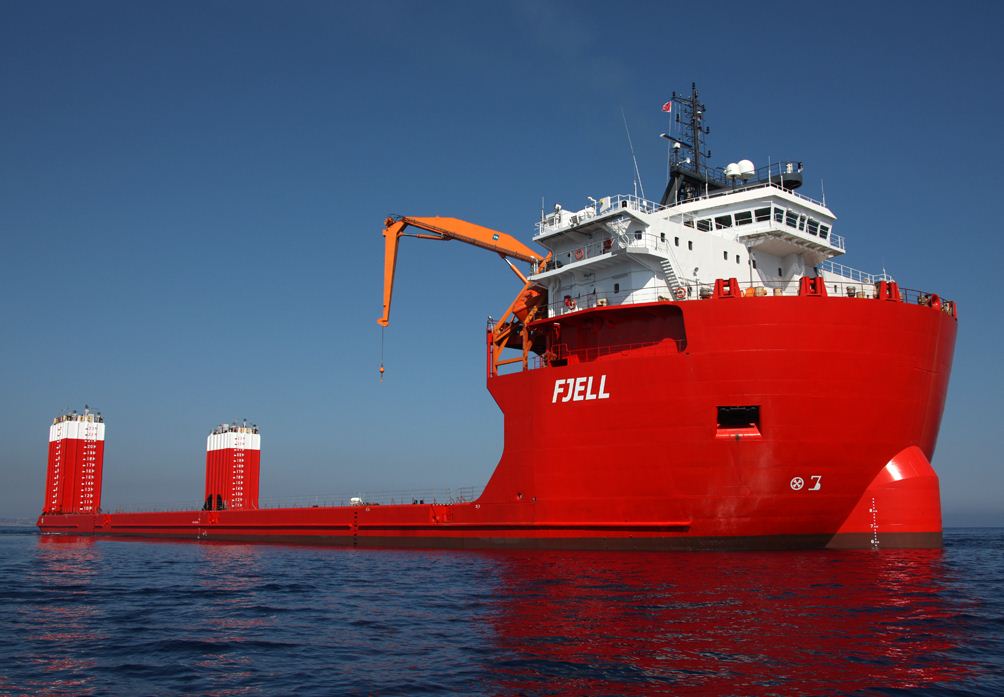- NPA Breaks Monopoly in Oil and Gas Cargo
With the arrival of the Egina $3.3 billion Floating Production Storage Offloading (FPSO) vessel in Lagos, the Federal Government has broken the monopoly in that line of business, Nigerian Ports Authority (NPA) Managing Director Ms. Hadiza Bala Usman has said.
Only one firm handles oil and gas vessel cargo at Onne, Warri and Calabar terminals.
The giant oil and gas vessel arrived in Lagos, after 90 days voyage from Samsung Shipyard, Goeje in the Republic of South Korea.
Speaking after the vessel berthed at the LADOL Integrated Free Logistics Zone in Lagos, Ms. Usman said it was a feat achieved by the government, NPA, other terminal operators and importers of oil and gas equipment.
She said the choice of Lagos for the project, was a confirmation of the reason behind the government’s policy to liberalise oil and gas logistics operations to ensure competitiveness, efficiency and boost revenue.
The Federal Government, she said, had fulfilled part of the subsisting contract it signed with the terminal operators through NPA and the Bureau of Public Enterprises (BPE).
The FPSO Egina, she said, had a length over aii ( LIA) OF 330 METERS, width of 63 METERS and a Gross Tonagd ( GT) of 219,800 tonnes and it is the first time the NPA and the country would be handling vessel of the size.
The berthing of the giant vessel by the NPA, she said, was an attestation to the infrastructural and operational preparation of the NPA.
NPA, she said, has put to rest the protest by some terminal operators over the purported designation of a terminal operator as the exclusive handler of oil and gas cargoes, which, she said, was against the port reforms carried out by the Federal Government in 2006.
“The successful berthing of this huge vessel testifies to our capacity to provide improved services to the oil and gas industry.
“We recognise that the magnitude of this project presented the NPA with the opportunity to, once again, showcase our unrelenting efforts at building capacity to meet the needs of customers across board, we are grateful for this unique partnership and look forward to more of such.
“This project put a demand on the NPA to facilitate the berthing of the FPSO Egina for the completion of its construction at Lagos Harbour. It also further the Federal Government’s local content policy with multiple effects evident in employment opportunities, capacity building, technological transfer, cost saving, reduction in capital flight as well as the attraction of oil and gas hub to Nigeria for the sub-region,” Ms.Usman said
She said, the Federal Government, will continue to ensure that all ports operations are modeled in line with global best practices which recognise only three classes – bulk, container and multipurpose cargo, saying this is the practice globally.
Ms. Usman gave kudos to President Muhammadu Buhari and the Federal Government for initiating an impressive policy that empowered the authority to return to the three classes as it is done across the globe.
She assured prospective local and foreign investors, operators, importers, shipping companies, clearing agents and other port users that the misnomer in the oil and gas designation which has been corrected by the Federal Government through the NPA to enthrone competitiveness and end the unwarranted monopoly would not be allowed to resurface again in the country.
“Our plan is to ensure a regulatory environment that promotes the maritime industry. We are looking at ensuring that there is competition; we know the problems confronting most of the terminals at the various ports, we feel the need for the government to ensure that local content for example is adhered to.
“Businesses are coming into the country, we are doing our best to encourage them to ensure that the utilisations of their operations are domiciled in Nigeria, we also encourage operators to ensure that they have Nigerians within their ranks, employment for Nigerians is very important. We also believe that wherever enabling environment is required we will provide.
“We believe in stakeholder’s consultation, we will continue to bring everyone to the table for us to seat down and ensure that there is need for us to work together. As an authority, we are going to lead and ensure that local content is provided. We will step beyond the things that we historically used to do so that whatever is required for the operators to work together for Nigeria to have the maximum benefit that it can attract for itself within this environment.
“We are looking at making Nigeria the hub for West Africa; working to ensure that there is operational efficiencies and make effort to improve the ease of doing business and the competitiveness of our port operations; we will work with the operators and look at areas where there is overlapping among the operators and agencies within the Ministry of Transportation and ensure that we work together to ensure that there is synergy,” she said.
Importers said the dominance of the nation’s oil and gas logistics business at the ports has ended with the arrival of the FPSO vessel in Lagos.
One of the importers, Mr Kenneth Anderson, gave kudos o the Federal Government and the NPA for guaranteeing the right of importers to choose terminals or ports of their choice for the discharge of their cargo.

 Naira4 weeks ago
Naira4 weeks ago
 Naira4 weeks ago
Naira4 weeks ago
 Travel4 weeks ago
Travel4 weeks ago
 Naira3 weeks ago
Naira3 weeks ago
 Jobs4 weeks ago
Jobs4 weeks ago
 Naira4 weeks ago
Naira4 weeks ago
 Investment4 weeks ago
Investment4 weeks ago
 Travel4 weeks ago
Travel4 weeks ago


























